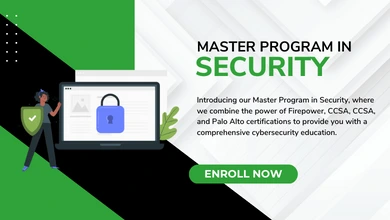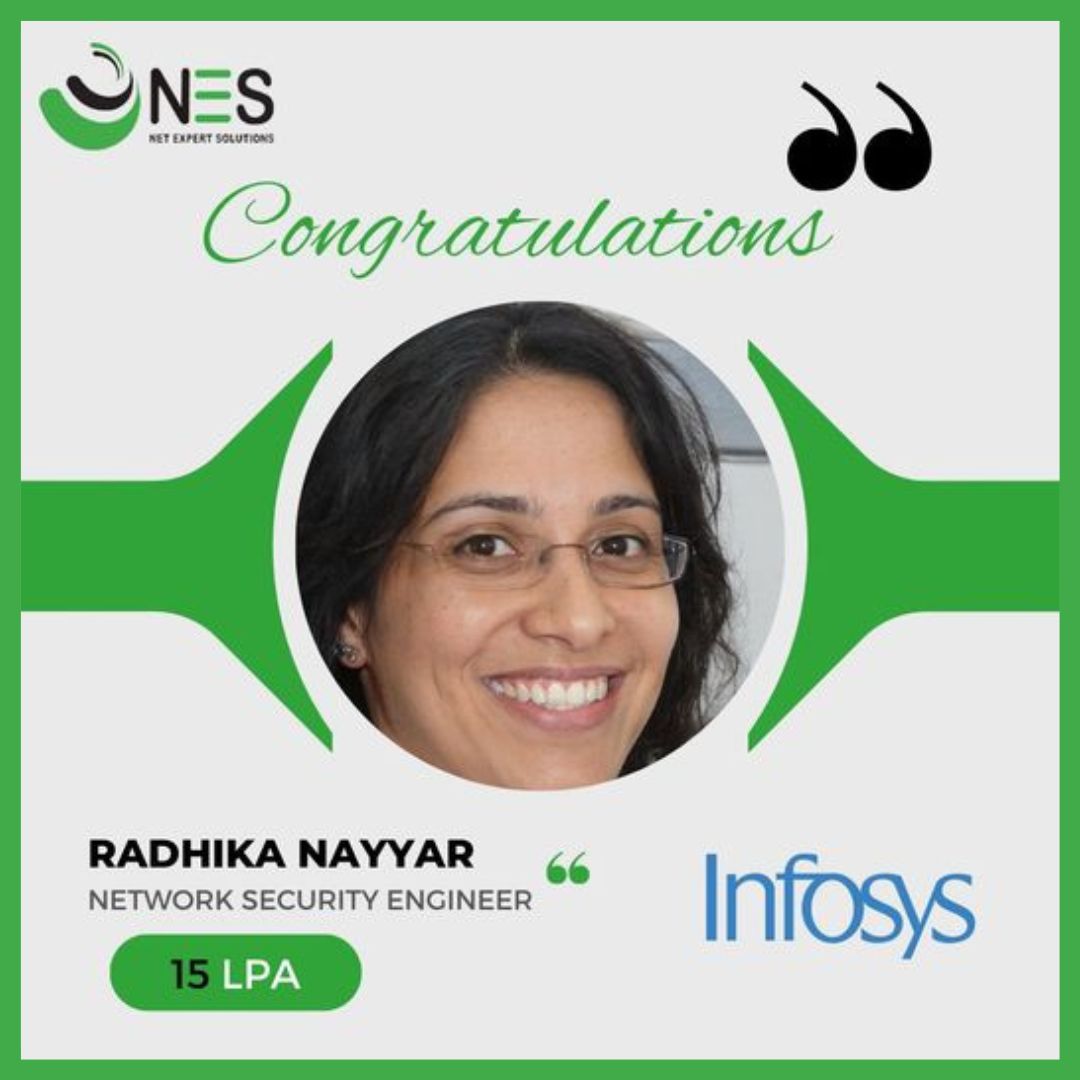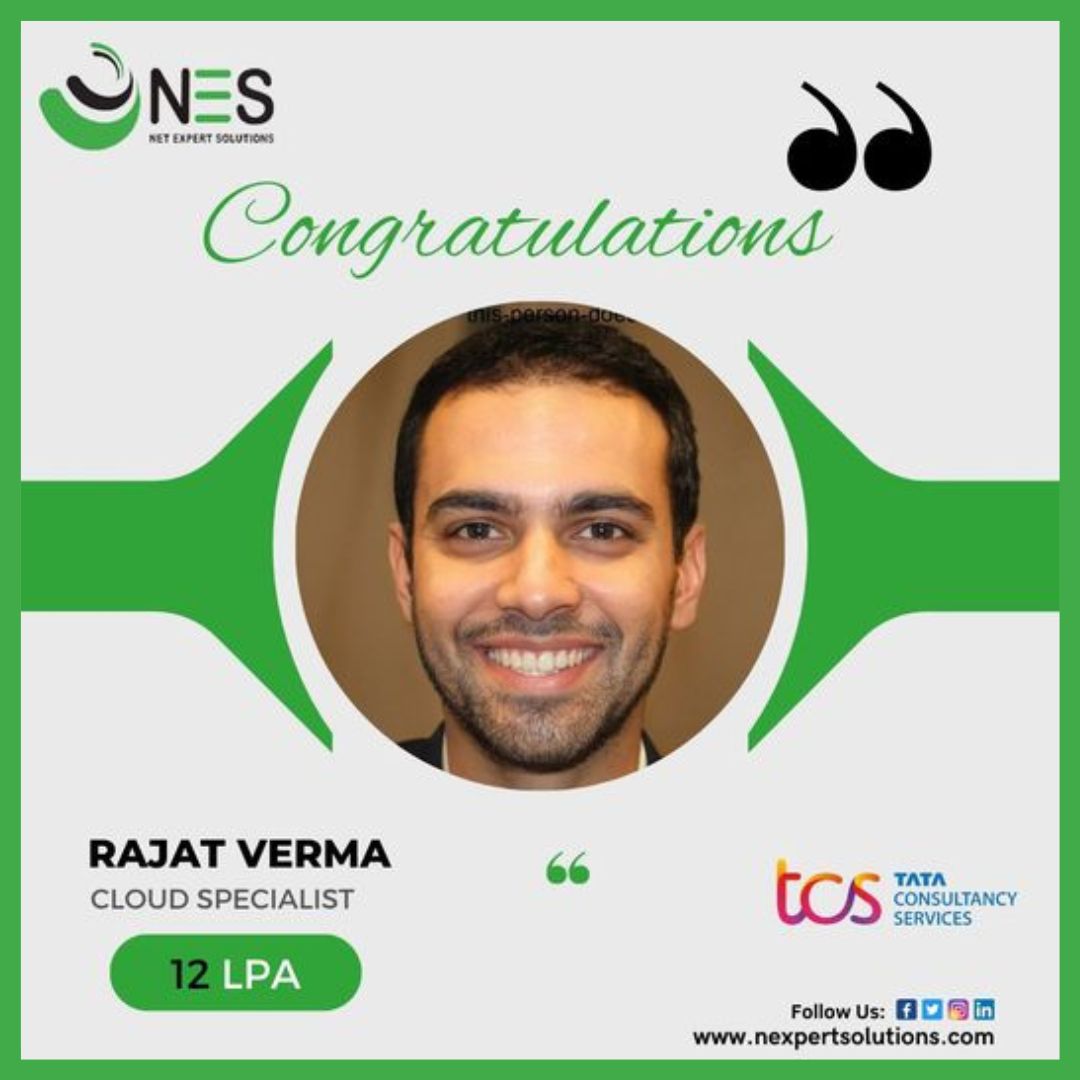Cisco Certification Training
- 40 Hours
- Online-Classroom
- 54566 Student Enrolled
Cisco Certification Training Online
"Get Expert Guide For Your Better Career Guidance."
Introduction to Cisco Certification Courses Training
In today's technology-driven world, the demand for skilled IT professionals continues to rise. As organizations strive to build robust and secure networks, the need for individuals proficient in Cisco technologies becomes increasingly critical. This is where Cisco certifications play a significant role. Cisco Systems, a global leader in networking and IT infrastructure solutions, offers a comprehensive certification program designed to validate and enhance professionals' skills in Cisco technologies.
Overview of Cisco certifications:
The Cisco certification program offers a diverse range of certifications that cater to individuals at different stages of their careers. From entry-level to expert-level certifications, Cisco provides a clear pathway for professionals to develop their knowledge and expertise in networking, security, collaboration, design, and more. Each certification level builds upon the previous one, allowing individuals to progress and demonstrate their proficiency in specific areas.
Importance of Cisco certifications in the IT industry:
Cisco certifications hold immense importance in the IT industry for several reasons. Firstly, they provide a standardized measure of an individual's competence in Cisco technologies, ensuring that certified professionals possess the necessary skills to meet industry demands. Moreover, Cisco certifications are globally recognized, providing credibility and validation to professionals' expertise. Employers often prioritize candidates with Cisco certifications, as they demonstrate a commitment to continuous learning and staying updated with the latest advancements in networking and IT infrastructure.
Benefits of pursuing Cisco certification courses: Pursuing Cisco certifications offers numerous benefits to professionals seeking to advance their careers. Firstly, Cisco certifications provide a structured learning path, equipping individuals with comprehensive knowledge and practical skills in specific technology domains. This expertise opens doors to a wide range of job opportunities, both within organizations and as independent consultants. Cisco-certified professionals also enjoy higher earning potential, as their specialized skills are highly valued in the job market. Additionally, Cisco certifications offer access to exclusive resources, such as technical support, online communities, and continuous learning opportunities, enabling professionals to stay ahead in their field.
Cisco Certification Pathways:Building a Strong Foundation for Career Growth
Entry-level certifications:
The entry-level certifications offered by Cisco are designed for individuals who are new to networking or seeking to start their careers in the IT industry. These certifications provide a solid understanding of foundational networking concepts and technologies. The entry-level certifications include the Cisco Certified Entry Networking Technician (CCENT) and the Cisco Certified Technician (CCT). These certifications serve as stepping stones for individuals looking to pursue more advanced certifications in the future.
Associate-level certifications:
Associate-level certifications are the next step in the Cisco certification pathway. These certifications are intended for professionals with some networking experience and knowledge. The most well-known associate-level certification is the Cisco Certified Network Associate (CCNA). CCNA covers a wide range of networking topics, including routing and switching, security, wireless networking, and more. Cisco also offers the Cisco Certified Design Associate (CCDA) certification, which focuses on network design principles and best practices.
Professional-level certifications:
Professional-level certifications are designed for experienced networking professionals who want to deepen their knowledge and expertise in specific technology areas. The professional-level certifications include the Cisco Certified Network Professional (CCNP) and the Cisco Certified Design Professional (CCDP). These certifications delve into advanced networking concepts and technologies, such as routing and switching, collaboration, security, and design principles. Professionals holding these certifications are equipped to handle complex network deployments and troubleshooting scenarios.
Expert-level certifications:
Expert-level certifications are the pinnacle of the Cisco certification program and are recognized globally as a mark of exceptional expertise in Cisco technologies. The most prestigious expert-level certification offered by Cisco is the Cisco Certified Internetwork Expert (CCIE). CCIE focuses on advanced networking technologies, including routing and switching, security, collaboration, data center, and service provider. Achieving CCIE certification requires a high level of skill, knowledge, and hands-on experience, making it highly regarded in the industry.
Architect-level certifications:
The highest level of certification offered by Cisco is the Architect-level certification. The Cisco Certified Architect (CCAr) certification is designed for senior network architects who possess advanced knowledge, skills, and experience in designing complex network solutions. CCAr certification demonstrates the ability to develop and execute strategic network architectures that align with business objectives and requirements.
Popular Cisco Certification Courses:
Unlocking Opportunities in the IT Industry Cisco Systems, a renowned leader in networking and IT infrastructure solutions, offers a range of certification courses that enable professionals to gain expertise in specific technology areas. These courses provide individuals with comprehensive knowledge and practical skills required to excel in the IT industry. Let's explore some of the popular Cisco certification courses that are highly sought after by professionals worldwide.
Cisco Certified Network Associate (CCNA):
The Cisco Certified Network Associate (CCNA) certification is one of the most recognized and widely pursued certifications in the networking field. It covers essential networking concepts, including routing and switching, network security, wireless networking, and network troubleshooting. TheCCNA certification course validates the foundational knowledge and skills required to install, configure, operate, and troubleshoot medium-sized routed and switched networks.
Cisco Certified Network Professional (CCNP):
The Cisco Certified Network Professional (CCNP) certification is designed for networking professionals seeking to advance their careers and gain expertise in specific technology areas. CCNP offers various specialization tracks, such as CCNP Routing and Switching, CCNP Security, CCNP Collaboration, CCNP Data Center, and more. Each specialization track focuses on in-depth knowledge and hands-on skills in its respective domain, enabling professionals to excel in their chosen area of expertise.
- CCNP Enterprise Certification Training Course
- CCNP Security Certification Training Course
- CCNP Data Center Certification Training Course
- CCNP Service Provider Certification Training Course
- CCNP Collaboration Certification Training Course
Cisco Certified Internetwork Expert (CCIE):
The Cisco Certified Internetwork Expert (CCIE) certification is widely regarded as the pinnacle of networking certifications. CCIE is available in different tracks, including Routing and Switching, Security, Collaboration, Data Center, and Service Provider. CCIE certifications are highly sought after by experienced networking professionals as they demonstratea high level of expertise and proficiency in planning, designing, implementing, and troubleshooting complex network infrastructures.
- CCIE Enterprise Infrastructure Certification Training Course
- CCIE Security Certification Training Course
- CCIE Data Center Certification Training Course
- CCIE Service Provider Certification Training Course
Cisco Certified Design Expert (CCDE):
The Cisco Certified Design Expert (CCDE) certification focuses on network design principles and solutions. It is designed for professionals involved in designing advanced network architectures. CCDE certification validates the skills required to analyze business and technical requirements, develop network designs, and translate them into efficient and scalable network solutions. CCDE-certified professionals are sought after for their ability to design networks that meet business objectives while considering technical constraints.
Other specialized certifications: In addition to the aforementioned certifications, Cisco offers a range of specialized certifications that cater to specific technology areas. Some notable examples include:
- Cisco Certified CyberOps Professional: Focuses on cybersecurity operations and incident response.
- Cisco Certified DevNet Professional: Targets professionals with programming and automation skills in Cisco environments.
- Cisco Certified Specialist Certifications: Cover specialized topics such as network programmability, data center infrastructure, wireless network design, and more.
Pursuing popular Cisco certification courses opens up a world of opportunities in the IT industry. Whether you choose the foundational CCNA certification, advanced CCNP tracks, prestigious CCIE certifications, or specialized certifications, each course equips you with the knowledge and skills required to excel in your chosen domain. Cisco certifications are highly regarded by employers and demonstrate your commitment to continuous learning and staying updated with the latest networking technologies. So, invest in Cisco certification courses to unlock new career prospects and enhance your expertise in the dynamic world of IT.
Preparing for Cisco Certification Courses:
Embarking on a Cisco certification journey requires proper preparation to maximize your chances of success. By understanding the prerequisites, choosing the right certification, exploring study resources, creating a study plan, and engaging with study groups, you can set yourself up for a rewarding certification experience. Let's delve into the essential steps to prepare for Cisco certification courses.
Understanding the prerequisites:
Before diving into a Cisco certification, it is crucial to understand the prerequisites. Some certifications may require prior knowledge or experience in networking or related technologies. Familiarize yourself with the prerequisites for your desired certification and ensure you meet the requirements. If you lack the necessary prerequisites, consider starting with an entry-level certification to build a solid foundation.
Preparing for Cisco Certification Courses:
Embarking on a Cisco certification journey requires proper preparation to maximize your chances of success. By understanding the prerequisites, choosing the right certification, exploring study resources, creating a study plan, and engaging with study groups, you can set yourself up for a rewarding certification experience. Let's delve into the essential steps to prepare for Cisco certification courses.
Choosing the right certification for your career goals:
Cisco offers a wide range of certifications, each catering to specific technology areas and career paths. Research and identify the certification that aligns with your career goals and interests. Consider factors such as your current skill level, job requirements, industry trends, and personal aspirations. By selecting the right certification, you can focus your efforts on acquiring the skills and knowledge most relevant to your desired career trajectory.
Exploring available study resources:
Cisco provides various study resources to help you prepare for certification exams. Start by exploring the official Cisco documentation, which includes exam blueprints, official guides, and whitepapers. Additionally, consider third-party resources such as books, online courses, video tutorials, and practice exams. These resources provide valuable insights, explanations, and practice materials to reinforce your understanding of the exam topics.
Choosing the right certification for your career goals:
Cisco offers a wide range of certifications, each catering to specific technology areas and career paths. Research and identify the certification that aligns with your career goals and interests. Consider factors such as your current skill level, job requirements, industry trends, and personal aspirations. By selecting the right certification, you can focus your efforts on acquiring the skills and knowledge most relevant to your desired career trajectory.
Joining study groups and online communities:
Studying with peers can enhance your learning experience and provide support throughout your certification journey. Join study groups or online communities dedicated to Cisco certifications. Engage in discussions, share resources, and collaborate with fellow learners. These communities often provide valuable insights, study materials, and tips from individuals who have already obtained the certification. Learning from others' experiences can boost your understanding and confidence.
The Structure of Cisco Certification Exams:
Cisco certification exams are carefully designed to assess your knowledge, skills, and proficiency in specific technology areas. Understanding the structure of these exams is essential for effective preparation and successful completion. In this section, we will explore the various aspects of Cisco certification exams, including exam formats, question types, duration, passing scores, registration, and test-taking strategies.
Exam Formats and Question Types:
Cisco certification exams are typically computer-based and offered in a proctored environment. The exams may follow different formats based on the certification level and technology area. The most common formats include:
- Multiple-choice questions (MCQs): These questions present you with a question and multiple answer choices, and you must select the correct answer(s).
- Simulations: Simulations simulate real-world scenarios, requiring you to perform configuration tasks or troubleshoot network issues using a simulated network environment.
- Drag-and-drop: In these questions, you must correctly match items or concepts by dragging them to their respective targets.
- Fill-in-the-blank: These questions require you to provide a specific word, phrase, or command to complete a sentence or scenario.
- Testlets: Testlets consist of a scenario or case study followed by a set of related questions. You must analyze the scenario and answer the questions based on the given information.
Exam Duration and Passing Scores:
The duration and passing scores for Cisco certification exams vary depending on the certification level and technology area. Typically, exams range from 90 minutes to several hours. The passing score, expressed as a percentage, also varies but is generally around 70% or higher. It is important to review the exam details and guidelines provided by Cisco to understand the specific duration and passing score requirements for your desired certification.
Exam Registration and Scheduling Process:
To take a Cisco certification exam, you must register through the official Cisco certification website or a certified testing center. The registration process involves creating an account, selecting the exam, and paying the exam fee. Once registered, you can schedule your exam date and time based on availability at authorized testing centers. It is advisable to schedule your exam well in advance to secure your preferred time slot.
Tips for Exam Preparation and Test-Taking Strategies:
To enhance your chances of success in Cisco certification exams, consider the following tips:
- Review the exam blueprint: Familiarize yourself with the exam objectives and blueprint to understand the topics and weighting of each domain.
- Practice hands-on: Gain practical experience by setting up lab environments and performing configuration tasks. Hands-on practice reinforces your understanding and helps you become comfortable with Cisco technologies.
- Utilize practice exams: Take advantage of practice exams and sample questions available through official Cisco resources and reputable third-party providers. These resources simulate the exam environment and allow you to assess your readiness.
- Manage your time: During the exam, pace yourself to ensure you have sufficient time to answer all questions. Skip difficult questions and come back to them later if time permits.
- Read questions carefully: Pay close attention to the wording of each question to understand what is being asked. Take note of keywords and any specific requirements or constraints mentioned.
- Eliminate incorrect options: If unsure of the correct answer, eliminate obviously incorrect options to narrow down your choices and increase your probability of selecting the right answer.
- Review and double-check: Before submitting your exam, allocate some time to review your answers. Double-check for any mistakes or omissions.
Online Training Options for Cisco Certification Courses:
To excel in Cisco online certification courses, it is essential to choose the right training options that suit your learning style and needs. Cisco provides a variety of training options to cater to different preferences, including authorized training centers, online platforms, self-study materials, and hands-on lab experiences. By exploring these options and selecting the most suitable one, you can enhance your knowledge and skills in Cisco technologies. Let's delve into the training options available for Cisco certification courses.
Cisco Authorized Training Centres:
Cisco authorized training centres offer instructor-led training programs delivered by certified instructors. These centres provide a structured learning environment and hands-on lab experiences, enabling you to gain practical skills and interact with peers. The courses are designed to align with the exam objectives and cover the required topics in depth. Authorized training centres often offer various training formats, including classroom-based training, virtual instructor-led training (VILT), and on-demand courses, providing flexibility in scheduling and delivery.
Online Training Platforms and E-Learning Courses:
Nexpertsolutions offer a convenient and flexible way to access Cisco certification training online. These platforms provide a wide range of e-learning courses, including video lectures, interactive modules, practice exams, and virtual labs. Online training allows you to learn at your own pace and provides the flexibility to study from anywhere, at any time. Additionally, many online platforms offer community forums and expert support to address your queries and provide guidance throughout your learning journey.
Self-Study Materials and Books:
Self-study materials, including books, study guides, and official Cisco documentation, are valuable resources for individuals who prefer independent learning. Cisco publishes official study guides and reference books that cover the exam topics in detail. These resources provide comprehensive explanations, examples, and practice questions to reinforce your understanding. Self-study allows you to set your own study pace and focus on specific areas of interest or difficulty.
Hands-On Lab Experience and Practice:
Hands-on lab experience is crucial for gaining practical skills in Cisco technologies. Cisco provides virtual lab environments, known as Cisco Learning Labs, where you can practice configurations, troubleshoot network issues, and experiment with different scenarios. These labs replicate real-world network environments and allow you to apply your theoretical knowledge to practical situations. Hands-on practice enhances your understanding and prepares you for real-world challenges.
Supplemental Resources and Study Groups:
Apart from formal training options, there are additional resources and study groups that can complement your learning. These include online forums, study groups, and social media communities dedicated to Cisco certifications. Engaging with like-minded individuals and experts in the field can provide valuable insights, tips, and support. It allows you to share knowledge, clarify doubts, and stay updated with the latest industry trends.
Choosing the right training options is crucial for successful completion of Cisco certification courses. Whether you opt for instructor-led training at authorized training centers, online platforms and e-learning courses, self-study materials, hands-on lab experiences, or supplemental resources and study groups, each option has its advantages. Consider your learning style, schedule, and preferences to select the most suitable training options that align with your goals. Remember, combining multiple training options and leveraging practical experience will maximize your understanding and expertise in Cisco technologies.
Career Opportunities with Cisco Certifications Course:
Cisco certifications provide individuals with a competitive edge in the IT industry and open up a world of exciting career opportunities. With a wide range of certifications available, Cisco equips professionals with the knowledge and skills to excel in various technology domains. In this section, we will explore the career prospects, salary potential, advancement opportunities, and entrepreneurial possibilities that come with Cisco certifications
Job Prospects for Cisco Certified Professionals:
Cisco certifications are highly regarded by employers worldwide. Holding a Cisco certification demonstrates your expertise and dedication to the field of networking and IT infrastructure. With a Cisco certification, you can pursue a wide range of roles, including network engineer, network administrator, system administrator, security specialist, collaboration engineer, cloud engineer, and more. The demand for Cisco certified professionals remains consistently high as organizations rely on robust network infrastructures and secure data communication.
Salary Potential and Industry Demand:
Cisco certifications are known to have a positive impact on earning potential. According to various salary surveys and industry reports, professionals with Cisco certifications tend to earn higher salaries compared to their non-certified counterparts. The salary potential varies based on factors such as the certification level, years of experience, job role, and geographic location. As the IT industry continues to evolve, the demand for Cisco-certified professionals is expected to remain strong.
Advancement Opportunities within Organizations:
Cisco certifications provide a solid foundation for career growth within organizations. As you gain experience and demonstrate proficiency in Cisco technologies, you can progress to more senior positions with increased responsibilities. Cisco certifications act as a to higher-level certifications, enabling you to specialize in specific technology areas and take on advanced roles such as network architect, security consultant, solutions architect, or technology manager. Cisco certifications can help you stand out and advance in your career trajectory.
Entrepreneurial Possibilities and Consulting Roles:
Cisco certifications not only provide employment opportunities but also open doors to entrepreneurial possibilities. With in-depth knowledge and expertise in Cisco technologies, you can establish your own consulting business, offering network design, implementation, and maintenance services to organizations. Many companies seek the expertise of Cisco-certified consultants to optimize their network infrastructure and ensure seamless connectivity. Entrepreneurial ventures and consulting roles allow you to apply your skills in a dynamic and independent work environment.
Continuing Education and Staying Updated:
Cisco certifications require individuals to stay updated with the latest industry trends and technologies. Cisco regularly updates its certification programs to align with emerging technologies and industry demands. As a certified professional, you have access to continuous learning resources, including webinars, seminars, and Cisco's official documentation. Staying current with advancements in Cisco technologies enhances your career prospects and ensures your skills remain relevant in the ever-evolving IT landscape.
Conclusion:
Cisco certification courses hold immense importance and offer numerous benefits for individuals seeking career growth and success in the IT industry. Let's summarize the key points and emphasize the encouragement to pursue Cisco certifications.
Importance and Benefits of Cisco Certification Courses:
- Industry Recognition: Cisco certifications are globally recognized and respected, enhancing your professional credibility and opening doors to new opportunities.
- Enhanced Knowledge and Skills: Cisco certifications provide comprehensive training, allowing you to develop a deep understanding of networking technologies and gain practical skills that are in high demand.
- Competitive Edge: With a Cisco certification, you differentiate yourself from other professionals, making you a preferred candidate for job roles and promotions.
- Career Advancement: Cisco certifications act as a pathway for career growth, enabling you to progress to higher-level roles with increased responsibilities and better earning potential.
- Industry Demand: The IT industry relies heavily on Cisco technologies, and organizations value professionals with the expertise to design, implement, and maintain robust network infrastructures.
- Networking Opportunities: By joining the Cisco certified community, you gain access to a vast network of professionals, study groups, and online communities, providing support, collaboration, and knowledge sharing.
Encouragement to Pursue Cisco Certifications:
- If you aspire to excel in the IT industry and seek new avenues for growth, pursuing Cisco certifications is a wise choice. By acquiring a Cisco certification, you demonstrate your commitment to professional development and position yourself for success. Whether you are starting your career, looking to switch roles, or aiming for advancement within your organization, Cisco certifications provide the necessary knowledge and validation to propel you forward.
- Remember, the journey to obtaining a Cisco certification may require dedication, hard work, and continuous learning. However, the rewards are well worth the effort. Embrace the challenge, leverage the available resources, and embark on a path that will enhance your skills, broaden your opportunities, and open doors to a thriving career.
- So, don't hesitate. Take the leap and pursue a Cisco certification today. Unleash your potential, embrace the power of Cisco certifications, and pave the way for a future filled with professional growth, success, and exciting opportunities in the dynamic world of IT.
Why Choose NES I Services
- In- Depth Technology Knowledge In Real World Network
- Career Guidance With 4xCCIE Instructor
- 100% Placement Record in MNC’s
- Materials: Recordings I PPT’s I Official Books I Class Notes
- Interview Preparation By 4xCCIE Trainer
- Vendors Certified & 8+ Years Experienced Trainers From Networking Industry
- 24×7 Training I Lab I Management Support
- Retake Training Option (On Demand)
- Life-Time Doubt Support With Same Technology
- Focus on Current & Emerging Technology
- Innovative Technology Method
- FREE Placement/ Consultancy
- Dedicated Lab For Individuals
- Technical Exam Support Till Exam Date
- Relevant Material For Exams
- 100% Success Rate for Exams
- 100% Success Guarantee in Technology & Exam Assistance
- Your Expertise Our Desire
Frequently Asked Questions (FAQs) about Cisco Certifications
- The cost of Cisco certification courses varies depending on the level and specific certification you pursue. Cisco offers different certification tracks, each with its own pricing structure. It is recommended to visit the official Cisco certification website or contact Cisco for the most up-to-date information on pricing.
- Yes, you can pursue multiple Cisco certifications simultaneously. Cisco offers a wide range of certifications across different technology areas. However, it is important to consider your capabilities, time availability, and the complexity of the certifications you plan to pursue. It is advisable to create a study plan and allocate sufficient time for each certification to ensure successful outcomes.
- The time required to complete a Cisco certification course varies depending on several factors, including the level of certification, your existing knowledge and experience, and the time you dedicate to studying. Some certifications may require a few weeks of preparation, while others, especially higher-level certifications, may take several months or more. It is recommended to review the exam blueprints and assess your familiarity with the topics to estimate the time needed for preparation.
- Yes, Cisco certification exams often have prerequisites. The prerequisites vary depending on the certification level and specific exam. Some certifications may require you to pass lower-level exams or possess certain foundational knowledge and experience in networking technologies. It is important to review the exam requirements and prerequisites specified by Cisco for each certification you plan to pursue.
- Joining a study group for Cisco certification offers several benefits. It provides a supportive and collaborative learning environment where you can interact with fellow learners, exchange knowledge and study resources, ask questions, and clarify doubts. Study groups often offer different perspectives and insights, helping you gain a deeper understanding of the exam topics. Additionally, study groups can provide motivation, accountability, and encouragement throughout your certification journey.
- Cisco certification exams are periodically updated to align with the evolving technology landscape and industry demands. The frequency of updates varies depending on the certification track and the emergence of new technologies. It is advisable to regularly check the official Cisco certification website or subscribe to Cisco's notifications to stay informed about any changes or updates to the certification exams. It is important to prepare based on the most current exam blueprint and study materials.
| Training Duration | 40 Hours |
|---|---|
| Module | CISCO |
| Language | English | Hindi |
| Training Cost | |
| Certification Cost | As Per Vendor |
| Tuesday-Friday | 1.5 Hours/Day |
| Saturday-Sunday | 2 Hours/Day |
| Training Mode | Online/Classroom |



































